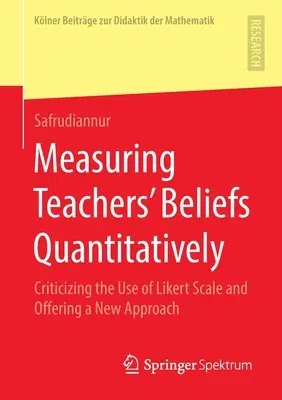Safrudiannur
(Author)Measuring Teachers' Beliefs Quantitatively: Criticizing the Use of Likert Scale and Offering a New Approach (2020)Paperback - 2020, 7 April 2020

Qty
1
Turbo
Ships in 2 - 3 days
In Stock
Free Delivery
Cash on Delivery
15 Days
Free Returns
Secure Checkout
Part of Series
Kölner Beiträge Zur Didaktik der Mathematik
Print Length
163 pages
Language
English
Publisher
Springer Spektrum
Date Published
7 Apr 2020
ISBN-10
3658300221
ISBN-13
9783658300227
Description
Product Details
Author:
Book Edition:
2020
Book Format:
Paperback
Country of Origin:
NL
Date Published:
7 April 2020
Dimensions:
21.01 x
14.81 x
1.09 cm
ISBN-10:
3658300221
ISBN-13:
9783658300227
Language:
English
Location:
Wiesbaden
Pages:
163
Publisher:
Weight:
254.01 gm

